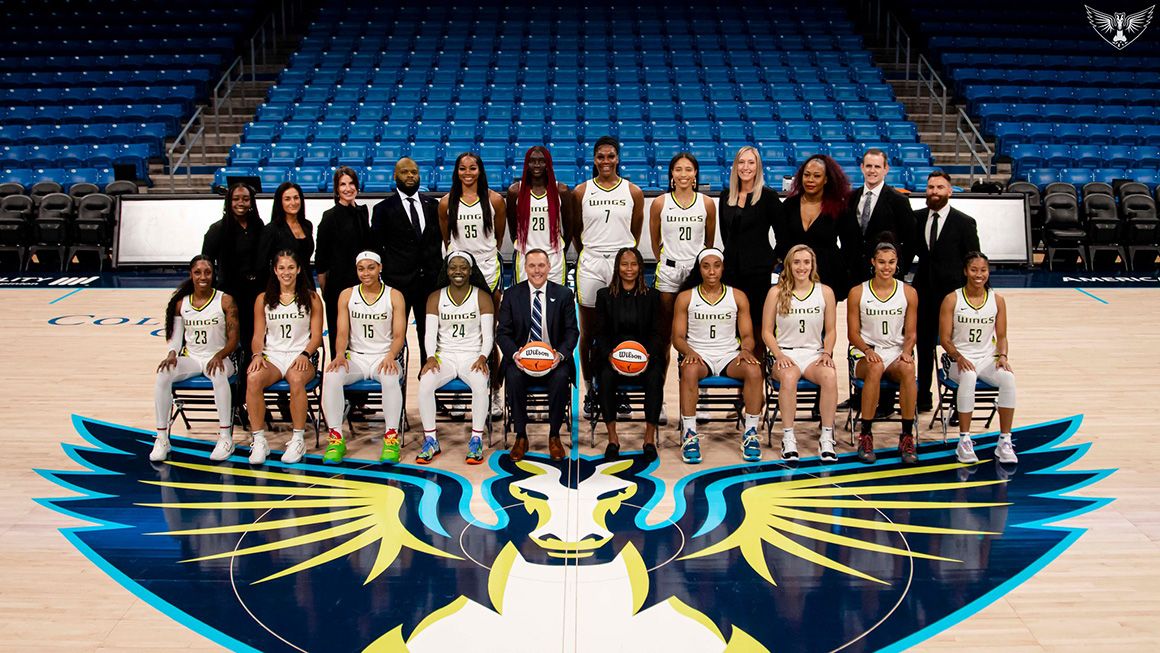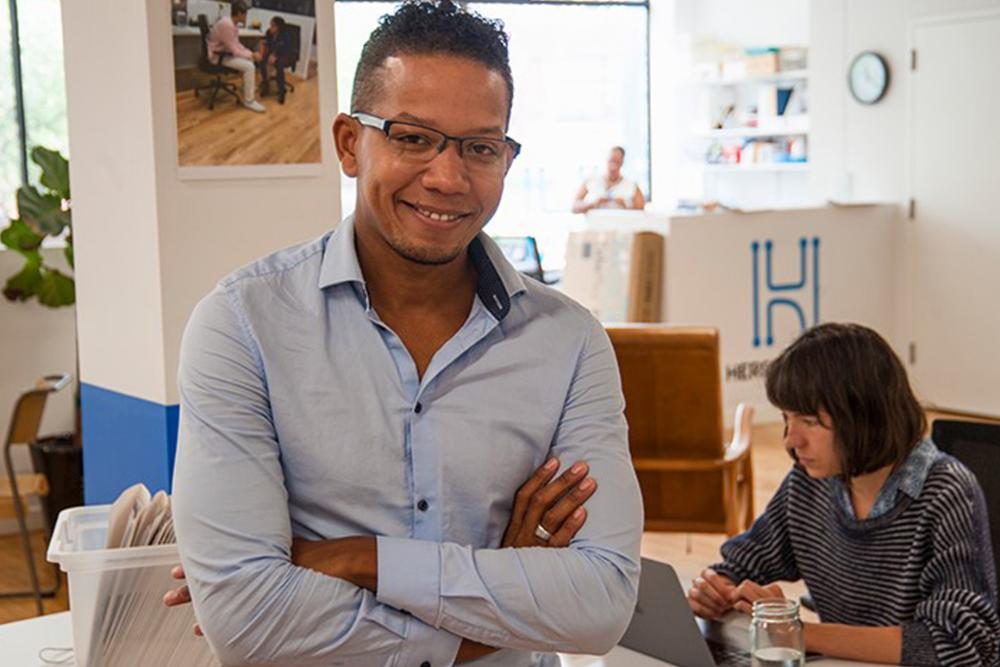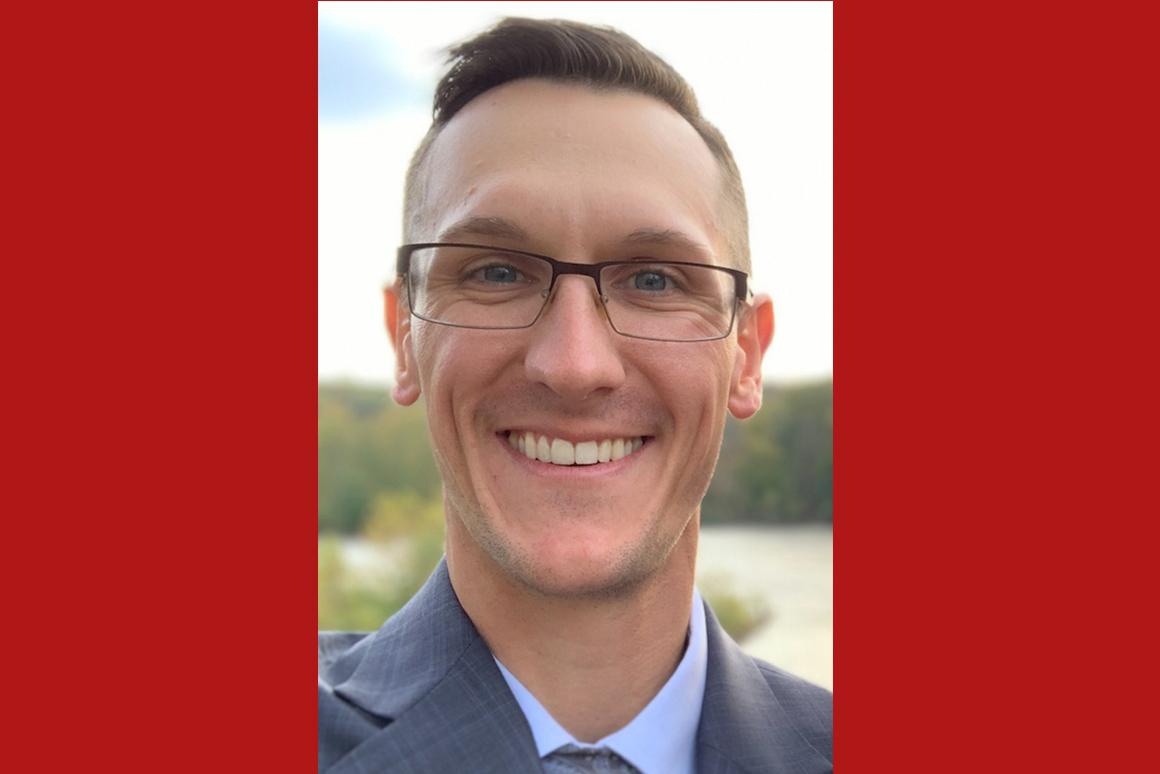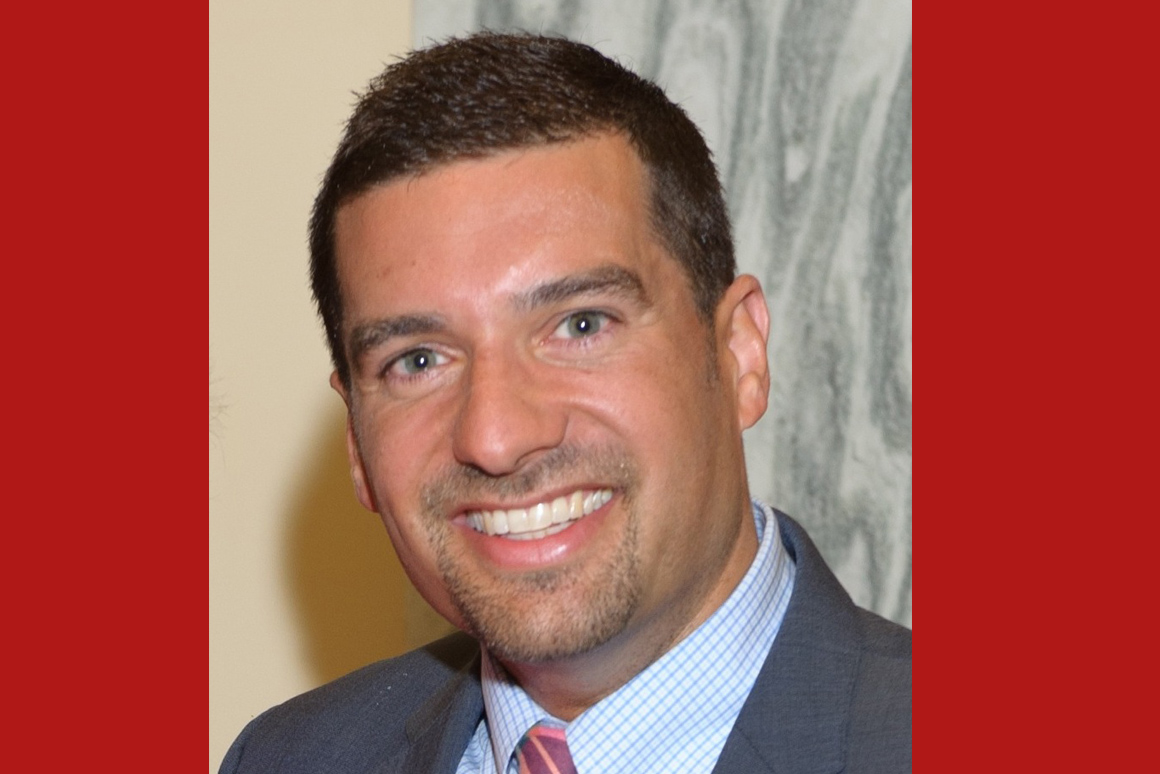Fall/Winter 2025-26

You might recognize the name Greg Bibb ’ 96 from when he called Marist basketball games — now he calls many of the shots as President, CEO, and Managing Partner of the WNBA Dallas Wings.
Greg Bibb ’96 always knew he wanted to be involved in sports. His love of athletics would take him from calling basketball games for Marist’s TV station all the way to serving as President, CEO, and Managing Partner of the WNBA’s Dallas Wings.“I had that sports aim and I felt that a communications degree with a concentration in radio, television, and film was the track to get there,” said Bibb, who, as an undergraduate, was the sports director for Marist’s TV station and covered sports for Marist’s newspaper, The Circle.Knowing the Marist internship program had contacts with the major sports networks, Bibb hoped he would earn a coveted internship if he worked hard enough. “I had that opportunity my junior year and had a chance to work on Monday Night Football and College Football Saturday,” he said. “It taught me so much about keeping up with a fast pace, working hard, and gave me that much more of a feel for the sports world.” He would one day be connected to an ABC Sports broadcast in a way he could never have imagined.“After Marist, I was able to take my sports background into a public relations opportunity with a soccer team and that actually forged a whole other path to grow in the industry,” he said. Eventually getting a chance to switch to the operational side, his roles have included executive VP of business operations of the NBA’s Washington Wizards and chief operating officer of the WNBA’s Washington Mystics. The latter he began in 2007 and then was in both roles starting in 2010. “I had the opportunity to try many things and learn from smart people,” he said.After later founding a sports-focused investment fund in 2013, he left basketball for a couple of years. A partner in the business, Bill Cameron, had an idea: come back and help him with his own WNBA team. “Getting back to being involved with the WNBA was a thrill,” Bibb said. “Bill was looking to move the Tulsa Shock to Dallas, the team today known as the Dallas Wings, and he asked if I would join the ownership group and lead the business.”“With the Wings, I’m in charge of all aspects of the organization. For example, growing our broadcast offerings… At one time, the team had a half dozen games on TV.” Referring to the 2022 season, he went on, “This past` year we played 36 games—and all 36 were broadcast. The telecast reaches all of Texas and Oklahoma, three-quarters of Arkansas, and half of Louisiana. That’s 11 million households that can see a Wings broadcast.”But one for ABC Sports, a playoff game against the Connecticut Sun on Aug. 21, was particularly momentous. “If you would have told me five years ago that we would be playing a playoff game on ABC before almost 800,000 viewers, I wouldn’t have believed you,” he said.But it’s more than the numbers for Bibb; it’s the hope. “I got involved with the WNBA to begin with partly because my wife, Tara, and I welcomed a baby girl,” he said. “This year is the 50th anniversary of Title IX and it’s important to create more opportunities for girls and women. My daughter has grown up around the WNBA and sees she can do anything she wants if she is willing to work for it. And it’s been just as important for our son … More opportunities need to exist for female athletes to be able to make a living professionally, and the success of the WNBA has a chance to help in that area.”Bibb, ever the competitor, doesn’t just have basketball nets on his mind, but lacrosse ones, too. He is also President, CEO, and Managing Partner of the professional lacrosse team Panther City Lacrosse Club, in Fort Worth, Texas. The team concluded its first season in the National Lacrosse League with high hopes in what he says is the fastest-growing city in the country, not to mention the 13th largest. “It combines the game of hockey that I played growing up and the game of basketball I’ve spent so much of my career in,” he said. “The participation rate in the sport keeps growing, there are cross-promotional opportunities with the Wings, and there’s the excitement of 20 to 30 goals a game on average. It’s another role for me that’s a great deal of fun…And, hey, isn’t fun what sports are all about?”
30 Jan 2023

Marist alumnus Dr. Edward Summers ’04/’06M, founder of Bronx-based the Thinkubator, has been named to Robin Hood’s Power Fund, a new initiative supporting leaders of color and their organizations.
Marist alumnus Dr. Edward Summers ’04/’06M, founder of Bronx-based the Thinkubator, has been named to Robin Hood’s Power Fund, a new initiative supporting leaders of color and their organizations. Robin Hood, New York City’s largest poverty-fighting organization, funds impactful and scalable solutions to lift families out of poverty. The Power Fund invests in leaders who share Robin Hood’s mission of increasing economic mobility while championing racial and economic justice. Summers has dedicated his career to economic development in his hometown of the Bronx.To combat the barriers leaders of color face in accessing philanthropic dollars, the Power Fund takes a three-fold approach: a meaningful investment in an organization; targeted capacity-building and technical support; and a self-directed investment in the leader’s own development and elevation. The Power Fund was seeded with an initial investment of $10 million by Robin Hood and investors such as the Stavros Niarchos Foundation, BlackRock, and Capital One.In 2020, Summers founded the Thinkubator, an innovative nonprofit that provides education, career, and work-based learning opportunities for low-income youth in the Bronx. The Thinkubator harnesses their creativity through a youth-led design thinking consultancy, internships, workforce training, career development, job placement, a Youth Council, educational programming, and advocacy. With financial support from the Power Fund, the Thinkubator can now enhance and expand its work. Said Summers, “I am excited, humbled, and honored by this opportunity to elevate the work and impact of the Thinkubator. I look forward to the transformational impact this funding will have on our organization and on the youth and communities we serve.”A two-time Marist graduate, Summers served for seven years as Presidential Fellow and a member of the senior leadership team under Marist President Dennis J. Murray. He is currently on the College’s Alumni Executive Board as well as its Diversity & Inclusion Alumni Advisory Board.
21 Jul 2021

Matthew Szymaszek, DO, has been helping people fight the coronavirus from the outset of the pandemic.
Matthew Szymaszek, DO, has been helping people fight the coronavirus from the outset of the pandemic.The Simsbury, CT, native and long-distance runner for the Marist track and field team graduated in 2007 but returned to the College to finish research that he started with Dr. Zofia Gagnon, a former associate professor of environmental science, before taking the MCAT — the Medical College Admission Test, a standardized test that is part of the medical school admissions process — in 2008. He began medical school at the Lake Erie College of Osteopathic Medicine in Erie, PA, where he met his wife, Lindsey, in 2009. After originally settling down in Delaware, the couple moved to Colorado. In the fall of 2019 Szymaszek started working in critical care for Pulmonary Associates in Colorado Springs, CO. Just a few months later, the world was rocked by the coronavirus. In March 2020, his work environment started changing. “I don’t think there was a single non-COVID patient at one time, and we have a couple different ICUs,” he said about the period around Thanksgiving 2020. “I think one of our towers — 16 beds — was all coronavirus patients, all on ventilators.”As the weeks and months went on, more data and research showed that there were more than just respiratory issues to deal with, namely blood clots that formed in kidneys. Still, day-to-day responsibilities didn’t change all that much. Szymaszek’s routine, he said, consists of “seeing everybody, making sure their work of breathing hadn’t changed, making sure they didn’t develop any other secondary organ disfunction — particularly, any kidney dysfunction — and then it’s symptomatic management after that.” Workplace efficiency, Szymaszek explained, was the primary way his job changed. “Taking care of patients is the primary focus,” he said, “but certainly, you still have to document everything that you’re doing. I think that was the biggest time crunch — trying to see everybody, making sure you weren’t missing anything, making sure all the nurses’ needs were addressed, talking with families.” Since the information about the virus was so fluid, the latter task was time-consuming and difficult to address. Hospital procedures and operation plans were updated daily, primarily in the limitation of visitors at the hospital and how to avoid clutter in ICUs. Patients were admitted to higher levels of care only when their need for additional oxygen escalated. Szymaszek and the other doctors gave input to the hospital’s higher-ups as well as each other. “It was our anecdotal experiences day in and day out that we would share with one another and learn from those things,” he said. One experience that proved to be an astute observation by one of the doctors was the beneficial impact of steroids. Results in the Randomized Evaluation of COVID-19 Therapy (RECOVERY) trial involving hospitalized patients with COVID-19 showed that using dexamethasone over 10 days improved mortality.Learning from experience was a critical part of fighting an unknown enemy. “Our system as a whole, early on, developed a treatment algorithm as things were evolving and coming out of other countries,” Szymaszek said. The components of that algorithm have been and continue to be in flux. At first, they used convalescent plasma donations from recovered patients, which contain antibodies that can fight off the virus. Treatments that have been mainstays, Szymaszek explained, are steroids (such as dexamethasone and Solu-Medrol) and anticoagulation medicines, which help protect against blood clots.Of course, no treatments were discovered to be a magic wand. Steroids brought along problems in people with preexisting conditions, namely with blood-sugar levels. “That’s always been an ongoing battle…because they’re on high-dose steroids off and on for weeks and weeks,” Szymaszek said. “And if they have already have some underlying diabetes and other issues, it just becomes a nightmare to get those things under control.”Vaccines initially slowed the progression of cases and severity of disease, but the advent of the delta variant has only spurred more hospitalizations and unprecedented "crisis standards" of care for some hospital systems. “We continue to have a steady influx of patients infected with coronavirus not just from the local community but also from hospital systems both in and out of the state,” said Szymaszek. “In the beginning of the pandemic, most patients were hospitalized with COVID and there was a noticeable decline in other medical conditions such as stroke or cardiac conditions and even trauma-related cases. Now, we have an increase in both COVID and other medical conditions which is why trying to find open beds for some systems is a challenge. At this stage of the pandemic the vast majority of cases can be prevented with vaccination, and yes, there are going to be breakthrough cases as more people are vaccinated, but the chances of requiring hospitalization or death are incredibly reduced. “The science is constantly evolving and I think that's what is hard for people to understand. What we knew a year or a few months ago may not be true today as we continue to learn more about this virus and its variants.” Szymaszek has paved himself numerous different paths to unwind and get away from work. One of the reasons the Szymaszeks moved to Colorado was to be close to Lindsey’s family so that her parents could help watch their children. Another was that it offered them plenty of outdoor activities. It’s a gold mine for the outdoorsy couple, who live on the north side of Garden of the Gods Park, in the foothills of Pikes Peak Mountain, and within hours of numerous skiing resorts. Szymaszek likes hiking, biking, fly fishing, and taking his boys — six-year-old Owen and five-year-old Evan — walking on nature trails. “My boys are in school and a local mask mandate has dramatically cut cases and quarantines for students and teachers when compared to when it was optional.”Staying true to his roots as a long-distance runner, Szymaszek competes in time trials with his college teammates. The pool of competitors features Sean Hopkins ’05, Sean Prinz ’06, Justin Harris ’07, Michael Schab ’06, and Michael Rolek ’08. Out of boredom during quarantine time, Prinz proposed the idea of doing competitions to stay active. They would pick various events and share the results with each other.Head coach Pete Colaizzo ’86 remembers Szymaszek — or as he called him, CT, the abbreviation for his home state — as “one of the highest-mileage guys on the team,” he said. “Always ran a lot. Always ran twice a day — early morning runs, late night runs, in addition to our practices. He’s the type of guy you just want on the team.” Szymaszek continues to participate in triathlons and half Ironmans, with more races on the horizon this winter and spring. For him, running has always been more than exercise; it’s an emotional outlet.“I don’t think I would have been able to get through med school if it weren’t for the running,” he said. “That was the only thing that was consistent, [that] I knew I could rely on, to go out and clear my mind, think about stuff. That certainly still holds true now.”
21 Jul 2021

Assisting a foundation in supporting Maine nonprofits.
One reason Justin Burkhardt ’02 took his current job with Harvard Pilgrim Health Care, in Portland, ME, was because the company was “mission-driven,” he says. Throughout the pandemic, he has had an opportunity to support that mission, alleviating food insecurity.Originally from Milford, NH, Burkhardt was a political science and American studies major at Marist. After graduating, he worked for Gov. Jeanne Shaheen, the first female governor of New Hampshire. When Shaheen became a US senator, Burkhardt joined her Washington, DC, staff and served as deputy chief of staff. After six and a half years on Capitol Hill, he relocated to Maine with his partner, David, and took a position as the marketing strategy manager with Harvard Pilgrim, a not-for-profit health care services company based in New England. The company’s mission is to improve the quality and value of health care for the communities it serves throughout the Northeast.His position involves not only developing marketing strategies but also assisting the Harvard Pilgrim Health Care Foundation in supporting Maine nonprofits. One program has been especially meaningful to him: Harvard Pilgrim’s Greater Portland COVID-19 Relief Meal Delivery Project.“During my time at Harvard Pilgrim, I have been involved in dozens of initiatives focused on giving back to the community,” he says. “However, this may be one of the most impactful.”When the COVID-19 pandemic hit in mid-March of 2020, Burkhardt was sent from his Portland office to work from his home in Cape Elizabeth, ME, for the rest of the year. That didn’t stop him from making an impact on his community, though. As part of his work with the foundation, he identified a Portland-based nonprofit, Cooking for Community, worthwhile of support. This newly formed initiative brought together food producers, restaurants, and agencies to ease food insecurity in the state. “Both of our missions aligned to help those in need,” said Burkhardt.Harvard Pilgrim partnered with Cooking for Community and the YMCA of Southern Maine to deliver meals to individuals and families impacted by the pandemic. Cooking for Community coordinated with local restaurants to prepare weekly meals, using many ingredients purchased from local farms. The YMCA of Southern Maine delivered the meals to homes across 24 towns. In its first 11 months of operation, from April 2020 to February 2021, Cooking with Community served more than 92,000 meals. Currently 2,200 meals a week are distributed through its partnerships with 20 social service organizations and 20 restaurants, putting dozens of food industry workers back to work.In addition, Burkhardt reached out to Maine’s nonprofit community to raise awareness about additional grant opportunities through the Harvard Pilgrim Foundation. From March to July 2020, the foundation gave more than $1.7 million in COVID-19 relief grants to help more than 70 small and large nonprofits throughout the state of Maine. “It feels,” said Burkhardt, “like we made a positive impact.”